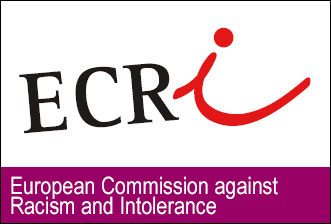One year ago, on 24 February 2022, Russia launched a full-scale invasion of Ukraine. In an exceptional statement on the consequences of the aggression of the Russian Federation against Ukraine, adopted shortly after, at its 88th plenary meeting, ECRI underlined that Russia’s war of aggression “was preceded and is accompanied by ultra-nationalist political discourse and propaganda”, resulted in the immense suffering of the Ukrainian people and forced millions of people in despair and mortal danger to flee or to take refuge within and outside Ukraine. Such situation led the Committee of Ministers of the Council of Europe with no other choice than to end Russia’s membership in the Organisation on 16 March 2022, which also terminated ECRI’s monitoring work regarding racism and intolerance in Russia.
In another statement, published a year before Russia’s aggression, ECRI considered it necessary to warn Council of Europe member states against ultra-nationalist and racist hate speech and violence in relation to confrontations and unresolved conflicts in Europe and against the “dangers of developing adversarial narratives”. In that statement, reference was also made to ECRI’s fifth report on the Russian Federation, adopted in 2018, in which ECRI expressed concerns about the increasing level of intolerance towards Ukrainians since 2014 and Ukrainians being depicted, at the political level, as “enemies” of Russia.
On 30 June 2022, in an exchange with the Committee of Ministers, the Chair of ECRI underlined that Russian leaders’ depiction of Ukrainians fighting for their country as neo-Nazis was an affront to the memory of the millions of victims of Nazism and those who combated it. She also advocated for a renewed commitment of the Council of Europe member states to the Organisation’s principles. “The problem is not about our standards. The problem is not about our monitoring capabilities. The problem is that a member state deserted the basic principles of this Organisation”, she said. “It is crucial that the now 46 Council of Europe member states demonstrate that they are deeply attached to all that this Organisation stands for, including effective equality for all and respect for diversity and that they fully cooperate with Council of Europe monitoring bodies like ECRI. To this end, each government should be able to hear the good, the bad and even the ugly”, she concluded.




